|
Episode 15: Welcome to the Equestrian Author Spotlight podcast! In each episode, you’ll hear inspirational stories from horse book authors including writing advice and marketing tips to help you write your own horse book. If you are an author, aspire to be an author, or simply love horse books then you are in the right place!
In this week's episode, you'll meet Many Brave Fools Author Susan E. Conley. You'll learn ...
Watch Susan E. Conley's Interview on YouTubeOr Listen to the Audio Only VersionAbout Author Susan E. Conley
Resident in Ireland for twenty one years, Susan E Conley went horse crazy at the tender age of 41 and 11/12ths. In 2006, she finally got up the nerve to get up on an actual horse as opposed to reading and dreaming about them, and it's been harder and easier than anything she's ever done yet.
Susan is a graduate of Pratt Institute with BFA in Communication Design. She has worked in the field since the summer between sophomore and junior year and counts The Village Voice, New York Magazine and Entertainment Weekly as past design experiences. She has a Master of Philosophy in Irish Theatre Studies from the Samuel Beckett Centre, Trinity College, an Honours Degree in Psychology, and a diploma in Equine Assisted Therapy and Learning. She worked as journalist soon after moving to Ireland as theatre critic and as a feature writer on lifestyle topics. Susan is the author of three other books: Drama Queen; The Fidelity Project; and the soon-to-be-rereleased That Magic Mischief. She is at work on her next 'horse book' as well as a new paranormal/historical romance series. Susan was not born in the saddle and didn’t even get near a one until she reached middle age. It never even occurred to her, as a child, to pine for a horse. She doesn’t run a yard, compete at a high level, or even own her own horse (yet.) After fourteen years though, she's still in love with everything horsey and member of her yard's riding club; she stands as safety officer and is hoping to compete off-yard in 2021. Susan E. Conley Interview Excerpt
Carly: Tell us how you started your love affaire with horses?
Susan: I took up horseback riding in 2006 after I left my marriage to a substance misuser. Five years previous to this, I'd gotten an urge to learn about horses but I didn't have the money or the time to investigate beyond reading a bunch of books—I was too caught up in trying to fix my husband to do anything crazy like pursue something for myself. I was too afraid to leave him alone for any stretch of time and who knew how much time horses would take? After focused work on myself and the admission that I was a codependent, largely through 12 step meetings (and the accumulation of years of therapy and countless self-help books) I left the marriage; three months later I took my first riding lesson. fourteen years on, I'm a member of the riding club at my home equestrian centre and while I don't have my own horse, I regularly ride two schoolies that nobody else can get to go. This I think may dovetail with my codependent tendencies—stubbornness springs to mind—but somehow it works without being detrimental to myself or the horses!
Carly: What advice would you offer others who may want to start riding horses at midlife?
Susan: I was and continue to be so fortunate in my instructors. The level of quality is astonishing, and I know this because I've been around the mounting block a few times — I've experienced only okay teaching as well as very poor. I did some 'riding around' to see other places and ride other horses, and wasn't too impressed. So my advice would be to shop around. Try a bunch of different places and pay attention to ho you feel after a lesson: do you feel like you've learned something and feel food, or do you feel bad? No one, at entry level, should ever be made to feel bad. Also: easy does it, at this age, we don't bounce!
Carly: You have a diploma in Equine Assisted Therapy and Learning. What made you decide to pursue this education? Tell us about the power of healing with our furry friends.
Susan: A friend of mine asked me why horses were so good for people in emotional pain and I said 'Because we hardly ever get to stand next to an enormous sentient being that is much bigger than we are, and lean on it,' and her whole face changed into this stunned, wistful expression. I want to be able to offer the opportunity to even just stand next to a horse to people who have never done so, much less experience the calm that descends during a good grooming, much less the thrill of sitting up there and having that enormous sentient being respond to our requests. Never mind the experience of the now moment! This, for me, is the biggest thing the absolute necessity of staying present around them, for your safety and theirs. It gives us a zero point to refer back to when when we start to get anxious, caught in the future; or depressed, stuck in the past. This is such a gift and I can't talk about it enough. For me, it starts the second the yard comes into view: nothing else exists but the horse and it is so healing and liberating. And upon leaving, whatever nonsense I'd been battling all day has been put into perspective. I can carry on with that perspective — and just like that, I've healed a little bit more.
Carly: What is your favorite motivational quote?
Susan: 'A good horse will never return to graze on grass it has already passed by.” That's a Chinese proverb I came across in a magazine article. It was used as a pull-quote and I have it tacked to the windowsill next to my desk. I left my marriage once before I left for good, and learned the wisdom of this quote through experience. I don't regret having tried one last time because when I did leave the second time, it was definite; I had no doubts; I'd tried and decided that my mental and spiritual health was too important to me to continue. I had had the courage to change and I followed through on it. I think of this quote every time I'm tempted to mistrust my instincts because it tells me that I have the power of choice, I have the power of discernment, and that I can trust myself to know what's good for me and what isn't.
Carly: You are originally from outside New York City and now live in Ireland. Tell us about Ireland and how you ended up living there.
Susan: I have dual citizenship through my paternal grandmother. I had applied for it in the mid 90s and moved to Paris, but my passport didn't come through in time and I moved back to NYC—I was very lazy about learning French and hadn't gotten a pillow tutor *wink* so it was the best thing all round. I went on holiday to Ireland on my own in '96 and loved it, went again in '97 when I was considering doing a masters at Trinity — I applied and got in and moved there in '98. I reckoned a year or two would be fab, I'd get out of the rut I was in, an boy, did I ever. In my first career I was a graphic designer for magazines and still do that work, but I had a great run in journalism in Ireland before it dried up. I doubt I would have transitioned into full time writing while still in New York. And the journalism gave me the confidence to start writing books.
Carly: Tell us about your book.
Susan: Many Brave Fools is my horsey-divorcey memoir. In it, I recount how I took up horse riding in midlife and how the experience of learning to ride mirrored my codependency recovery. When I stated out, from literal zero, I knew nothing about horses, and I did what I always do when I want to learn about something, and reached for a book. I bought everything I could get my hands on: coffee-table books replete with astonishingly beautiful photographs of horses in the wild; books that depicted the many breeds found the world over; anthologies that told the stories of the influential horses in people’s lives. I bought books about equitation that, in the early stages, may as well have been written in Sanskrit. I read about equine care and feeding, and again, felt like I was trying to decipher hieroglyphics. I was naturally drawn to the works of other women, who had experienced some life-changing event that drew them back to the horses. Struggling with illness, or, like me, divorce, the stories that recounted their drive to find themselves — their essential Self, their love for life, their simple joy — were wonderful, but also slightly intimidating. These women were already horsewomen, whereas I was an utter newbie. I was at the beginning of my journey, not knowing what to expect, or whether or not someone in my situation could truly find her way on horseback, both literally figuratively. While many of the narratives dealt with life histories, none I have come across have focused on recovery from codependence. My situation was beginning to appear more and more unique. So I started to write about it.
Carly: Do you have any stories that people would find interesting or entertaining about your writing or your horse background?
Susan: I got my first gig because I was working as a designer on a magazine. My masters is in Irish Theatre Studies and people at the mag were curious as to what a Yank was doing there. I routinely designed the theatre review page, which came in on a Thursday afternoon. It started coming in later and later... and it transpired that the critic at the time was waiting to plagiarize other people's reviews before sending it in! The editor was like, you're studying theatre, you can be the new critic and I said okay. I proceeded to panic and I remember at the first show I reviewed I had a little reporters notebook (awwwwww) and I took all these notes... so cute. I eventually became the editor of the theatre channel of an internet 1.0 website and contributed to all the major Irish publications. That first review was eventually published in a book as well, I forgot about that! I eventually moved on to do lifestyle features and a beauty review column — again, I was in the right place at the right time. I'm pretty lucky that way.
Carly: Tell us why you write.
Susan: Several years ago, I was shopping the manuscript for Many Brave Fools and I was also working on a romantic comic novel. I'd had three novels published at this stage; I'd been keeping busy with two blogs, one about horses, and the other connected to my work as a beauty journalist; and I was actively writing for newspapers and magazines, too. I could feel the sector of freelance journalism changing, as it ultimately did, meaning that the work was drying up. I couldn't see the point in continuing with the horse memoir, or with the novel. I was sitting on my sofa, and said to myself, I'm just going to stop writing. Heartbeat... heartbeat... and I laughed out loud. There was no way I was going to stop writing. It's how I'm wired. It's what I'm wired to do. I must take an idea and communicate it in words. That's it. While the form shifts and changes all the time—I'm no longer writing contemporary comic romances but have changed genres; my beauty blog is moribund; my horse blogging is revitalised; I recently came across a one-act play that might be worth sending out to competitions—it's what I do. I write. I don't know that's there a why, because it just is. I think it's also good for my mental health, because my mind has like five tracks, and focusing on that energy storytelling rather than intrusive thoughts or disaster thinking is good for me.
Carly: In your memoir Many Brave Fools you give us a glimpse into the chaos of your marriage to an addict as well as detailing your growing understanding of your own struggle with codependency. What is “codependency” and how did you first come to realize it is a word that plays a role in your life?
Susan: There are a lot of definitions out there, the simplest one is the one I like best, and I'm paraphrasing Melody Beattie here: it's when someone else's wellbeing is more important than your own, to the detriment of your physical, mental, emotional and/or spiritual health. Her book Codependent No More, is a cornerstone in the recovery community and I seriously read it four times before anything sank in. I resisted it so much! I didn't want a label even though I wanted to be 'better'. Until I began to want to be better for myself rather than make me an attractive relationship partner, nothing changed in my life. I slowly came round to the idea that I had issues in this area when I began going to 12 step. I was so ashamed of how bad I was as a partner to someone who had serious issues, that I wasn't doing enough. I never thought I might be contributing in some way to the situation. I was keeping very busy managing everything so it would safe for the other to the point where my own wellbeing went down the tubes in a way it never had in my whole life. And then I walked into a room full of people who were struggling with the same stuff and since I wasn't the only codependent in the whole wide world in history ever, it became easier to use that designation as the thin edge of the wedge of my recovery. Ultimately, I've decided that labels are umbrella terms that help you pin point what needs healing, that you don't have to BE whatever it is. I wouldn't introduce myself as a codependent, let's say, but I don't deny that a lot of my coping mechanisms developed out of a need to people please.
Carly: Why did you choose to write such a personal memoir with Many Brave Fools: A Story of Addiction, Dysfunction, Codependency...and Horses?
Susan: I kind of didn't... it wasn't what I had set out to do. I started a blog one year after having started riding, in 2007, and in 2009 decided I had enough material for an amusing, anecdotal memoir about being in my mid-forties and starting to ride horses. I researched how to get a memoir published, which led me to writing a book proposal, and then shopping said proposal. I wasn't getting any traction and I rejigged my query letter, tried again, started actually writing the thing... and realised, in a real programme spiritual awakening fashion that I needed to tell the truth. Nowhere in that first proposal did I mention that I had taken up horses due to having left my marriage. I wrote down in my desk diary 'It is a recovery memoir' and promptly went to work on a novel. LOL. But once I started re-reading the posts I wanted to use, and really sat down with myself, I realised that I was supplementing my 12 step work with the horse work and that was that. I was struck by the way learning something new had helped me in my recovery. As I focused my attention on the ups and downs of the undertaking, I began to understand that much of what I was learning in 12-step was underscored by horseback riding: I needed to keep the focus on myself in order to be at my best; I had to stay in the present or else everything would go pear-shaped; I had to keep things simple so I could learn. I couldn't imagine telling the story any other way and carried on. Carly: How did you go about writing a memoir? How did you get started? Talk us through it. Susan: I had those posts as I mentioned, and I had the concept of riding 20 metre circles as the foundation of my riding instruction. I also liked the concept that recovery isn't linear, that you keep coming around to the same challenges until you really look them in the eye and incorporate the lesson — ha, ha, lesson, see what I did there. That's how the book happened, like that last sentence: I'd start teasing out a thought and the riding and the recovery would connect. I'd sound really smart if I said I even knew what I was doing when the 20 metre circles kept cropping up, but it wasn't until the second draft that I became conscious of it. I knew it would have thematic chapters, and they would be one word titles and would flow between the marriage stuff and the horse stuff. I knew that the beginning would be a bit janky and that the narrative would smooth out as I became less janky and smoothed out... Eh, yeah: even with having written two different proposals and having had laid out the chapters and the titles, knowing all that, I still feel like I wasn't consciously putting it all together. This is terrible advice. Carly: Which hurdles did you personally face when writing so openly about your life and how did you overcome them? Susan: Fear, mainly. The fear of telling the truth. Every time I came to a point where it was clear the book was moving forward I'd clench up a bit, wondering what the point of telling this story was, my pride would get het up, I'd be afraid of exposing myself... and then I'd push through because I felt the work was valuable, that the connections I made between horses and my recovery were a bit out there but also interesting, and that someone suffering in the way I had might find it useful.
Carly: Very often, your relationship with a particular horse paralleled the path of your human relationship(s). How did horses help you identify areas needing self-improvement while at the same time instilling self-worth?
Susan: I found the paradox of horse riding—paradoxically—to be so helpful with my over-controlling, micro-managing default setting. The instructions were simple,: heels down, elbows in, eyes up, but also a challenge to do because I had to do them all at once. The reminders to do them were constant until I 'got' them, but those reminders were just that: no one was taking me apart as to why my heels weren't down, why couldn't I keep my heels down, I was a failure at keeping my heels down. So, because of that, I didn't berate myself. I just learned how to try without having to be perfect, and through continued trying, achieved it lowered heels. Meanwhile, I'd be struggling with a horse while doing all those things incorrectly and somehow, once I started doing my own things correctly, the horse would cease to be a problem (or just become a problem in a different way!) or I'd be given a different horse and and start all over again—but I'd do so feeling like, day by day, I was learning how to respond rather than react. < That's the key for me: using my acquired knowledge and trusting my instincts to apply them to new situations. Carly: The title of the book Many Brave Fools is based on a mnemonic taught to riders in order to remember letter markers in a dressage ring. What does this title mean to you and how does it capture the heart of your memoir? Susan: It really pulls together everything I didn't know I was doing: ending my terminal uniqueness; and appreciating the contrast between my courage and my self-deprecation. There are many of us who have struggled with loving an addict and who have never known how to love themselves; bravery wasn't only about taking up horse riding but also leaving the unhealthy situation in the first place; the last feels like self-deprecation but it also ties in with a kind of innocence that despite everything in our lives, we can all have access to, a willingness to keep showing up for life. Carly: Is there a message in your memoir that you hope readers will grasp? Susan: That while horses and 12-step helped me heal, there is no one size fits all for recovery. I read eleventy million self help books, I went to so, so many personal development workshops, I learned Reiki, all in an effort to 'fix' what was 'wrong' with me... When one thing wasn't the answer, I tried something else. This sounds a bit all over the place, but ultimately I ended up with a foundation upon which to draw and refer, explicitly and implicitly, in Many Brave Fools, a strong one upon which to put the big building blocks that were key—for me. If nothing else, I hope my memoir sparks a thought that leads the reader to follow their bliss, to find a new path of enjoyment and self-esteem, to take as big or small a risk, or make as big or small a change they have been considering. Carly: What advice would you offer those who may be struggling with their own codependent relationships? Susan: Codependency thrives in isolation — that is, feeling like you are the only one who is experiencing it. 12 Step helped me so much and I can't recommend it more highly. Paradoxically: being in a group of people pleasers can highlight all your blindspots and triggers and can feel like it's only going to make things worse, but it doesn't: it's a great way to work through your challenges and learn new behaviours.
Carly: You are published by TRAFALGAR SQUARE BOOKS. How did you end up deciding to traditionally publish? Tell us what it has been like working together?
Susan: I spent literal years looking for an agent to represent this book. As well, I was looking into self-publishing another project and thought, if if nobody takes me on, I'll so it myself. I had worked with a freelance editor as yet again, I was getting either rejections or no response to my queries. I had a great edit, and hard on the heels of that, I got a great rejection from an agency that basically said a conventional publisher would not be likely to take up my work as I wasn't a celebrity. Well, that's a bit of a harsh boil-down! But it was fabulous because I thought, right, okay, I'll give this one last chance and go directly to a publisher. I had come across TSB years ago and decided if they didn't take it, I'd self publish. I didn't do much research on their site until after I'd submitted, and then when I did I was totally intimidated — like, all their authors were famous equestrians. About six or seven weeks later I was away for a (non-horsey) workshop weekend in a place in County Wicklow that at the time was in a literal communications trough. There was a shed containing the wifi router and you had to pretty much lean on the door and lay your phone against it to get a signal. Before I headed off for breakfast, I decided to check my email and there was a response from TSB. I was like, I am in no mood for a rejection right now! And I didn't have my reading glasses and I read the thing word by word, and it wasn't a rejection! (There were horses in a barn nearby and I went over and told the gray who'd stuck his head out the door LOLLLL.) I couldn't be happier working with TSB. It was so important to have an edit by a horse person, they did a great job on press materials, they really want the book to succeed as much as I do. I can't even dwell on the honour I feel to be amongst the amazing equestrians they publish and the whole process was wonderful. Carly: Do you have any advice for aspiring authors who want to write a memoir? What do you wish you had known when you started out? Susan: I've put these two together because the main thing I think is so necessary and I wish I'd known so I could have done it sooner is: get an edit as soon as you think you've got a draft you think is publishable — simply because it is most likely not ready to be published, and a cool, professional eye will help you loads. When the work is so personal, and even if you've been writing for ages, a memoir is an entirely different animal and outside input essential. I say professional because even sending it out to beta readers, you're likely to know them, and their perspective may be coloured by their relationship to you. Carly: How do you reach your readers? Susan: I don't feel like I reach them very well. I am big into Insta, it's my favourite social, I find Twitter to be too much work to make an impression, and I keep forgetting I have a Facebook author page. I am like the poster girl for authors bad at outreach :) One of the things that was great about TSB is that they didn't reject me because I didn't have a massive platform. I love my blog and I'm happy with the way it looks but I don't feed it as often as I'd like. Carly: What is the hardest part about being an author? Susan: It took me ages to learn how my process works and to trust it. To feel like I have my own way of doing things and it's got nothing to do with a daily word count. Also: having to do the day jobs that take time away from writing. Carly: What is the best part about being an author? Susan: Having something beyond the day job! I have always resisted conventional time structure (I was good at school but haaaaated the bell ringing and the sitting in rooms) and being able to think about my projects or do a bit of work during lunchtime is great. Carly: What’s next? What are you curious about right now? Susan: Tying in with the diploma I did, I'm really interested in how horses are helping people with PTSD — veterans, first responders, victims of trauma. I think that working with animals is great overall, but horses in particular are so effective when struggling with emotional issues. I've barely begun reading around the topic, and I know that there is work being done journalistically and written up in research journals and papers; I'd like to add to the discourse with something more anecdotal and in feature-writing style, more about the actual people and their journeys. Connect with Susan E. Conley
Website: manybravefools.com
Facebook: Susan E Conley | Author Twitter: @manybravefools Instagram: @manybravefools Linkedin: Susan Conley
Watch the Many Brave Fools Book TrailerWant a free guide to secrets of horse book authors?
Gallop over to https://www.carlykadecreative.com/wisdom to have author advice delivered instantly to your inbox. This free resource includes words of wisdom and tips from equine authors on writing, independent publishing, traditional publishing, book marketing and more!
Thank you for joining us this week on the Equestrian Author Spotlight podcast I hope you enjoy these Q&A sessions with wonderful equine authors who love all things horses and writing just like me.
Make sure you never miss a show by clicking the subscribe buttons now. This podcast is made possible by listeners like you. I appreciate your support!
If you are an author who writes about horses and would like to be spotlighted please let me know. Visit my contact page to fill out a request. I'd be happy to have you on the show, too.
Thank you for tuning in to the Equestrian Author Spotlight podcast. See you next time! I'm your host Carly Kade. Creative writing makes my spurs jingle! About your Host and Author Carly Kade
Carly Kade is an award-winning equestrian author and the host of the Equestrian Author Spotlight podcast. Creative writing makes her spurs jingle! She writes fiction about horses, horse shows, Western pleasure and a handsome cowboy or two. Her books are for people just like her — crazy about reading, horses and cute cowboys!
In the Reins, the first in Carly's series of novels inspired by the equestrian lifestyle, has been an Amazon best seller for more than 10 weeks, is an EQUUS Film Festival Literary Award Winner for Best Western Fiction and has earned two Feathered Quill Book Awards in the Romance and Adult Book featuring Animals categories. The In the Reins equestrian romance series is available now in Audiobook, Paperback and eBook on Amazon, Audible, Barnes & Noble, Apple iBooks and Kobo. Comments are closed.
|
Books by Carly KadeBook TrailerAuthor InfoCarly Kade writes for anyone who loves horses, handsome cowboys and a great romance. Creative writing about horses makes her spurs jingle! Archives
October 2023
Please note: This website may contain affiliate links. If you choose to buy any books featured, I will receive a small commission at no extra cost to you. These affiliate purchases help with the upkeep of the podcast. Thank you for your support in keeping this site running. |
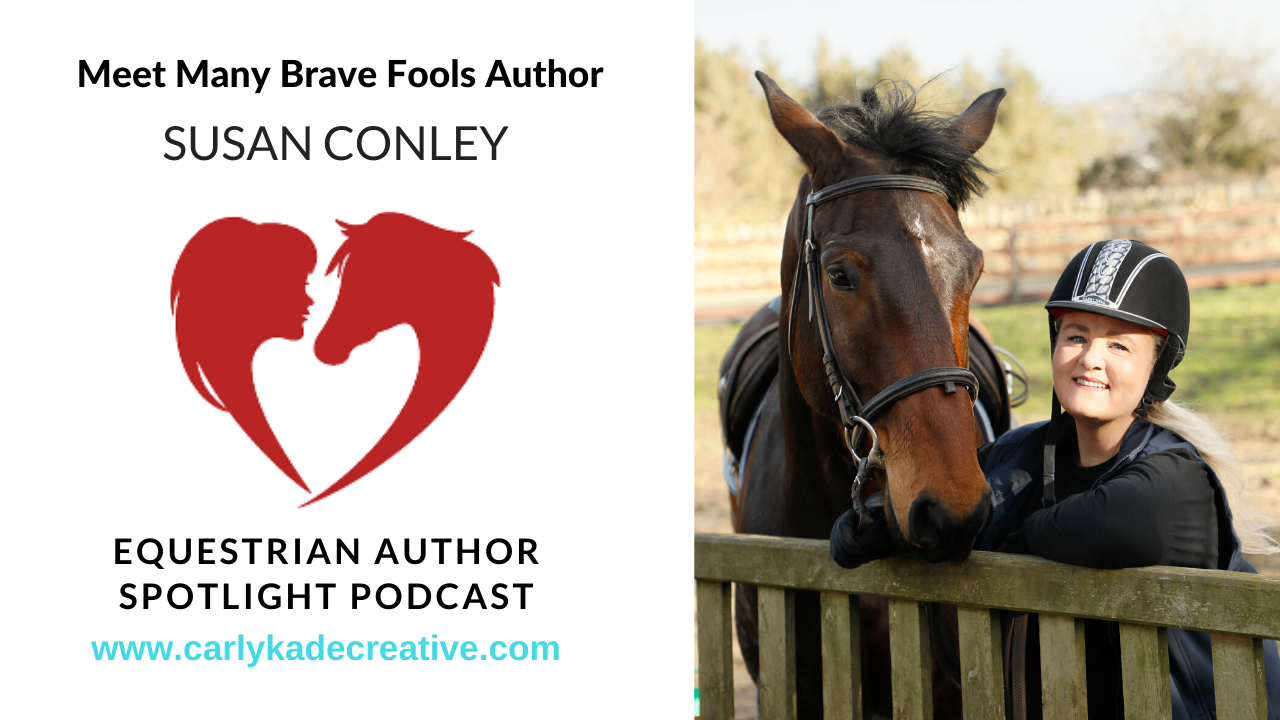
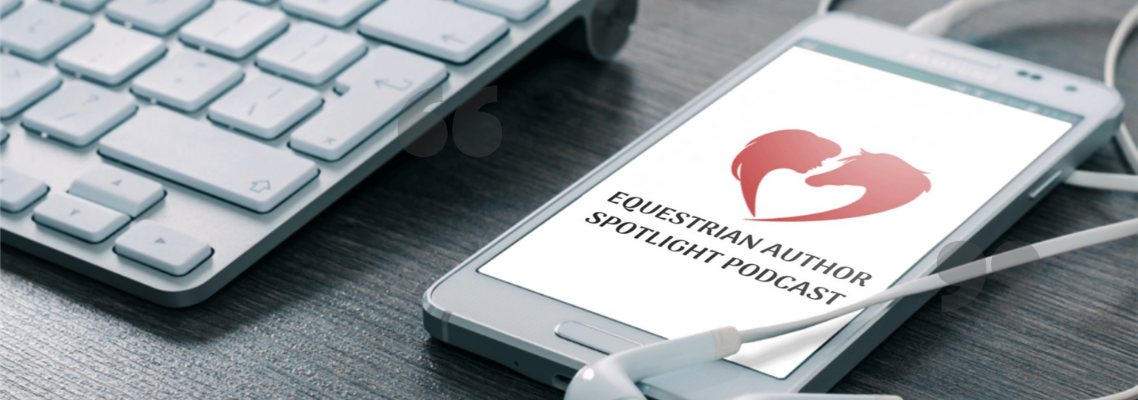
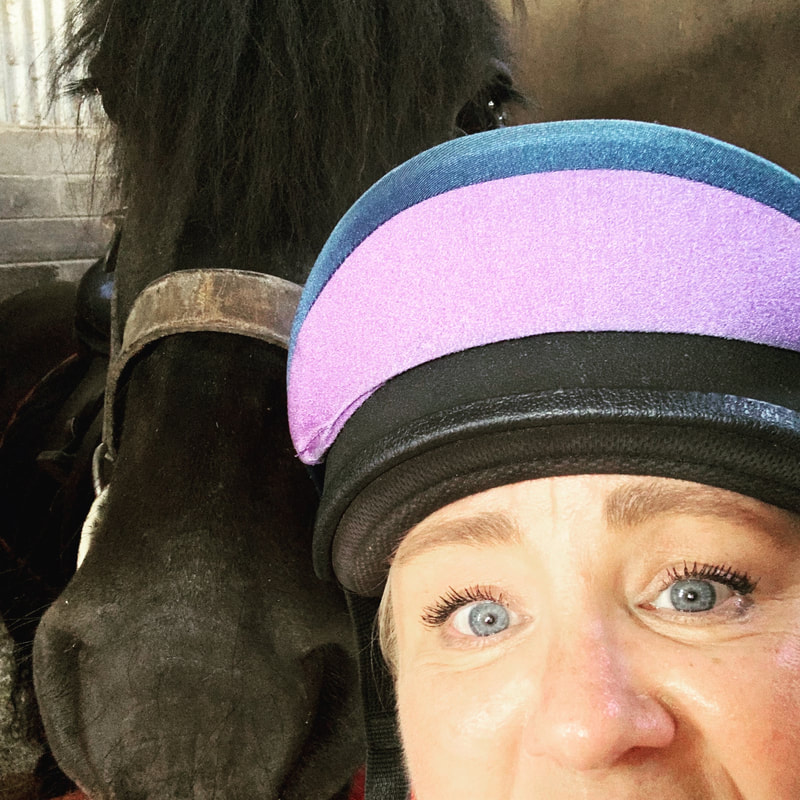
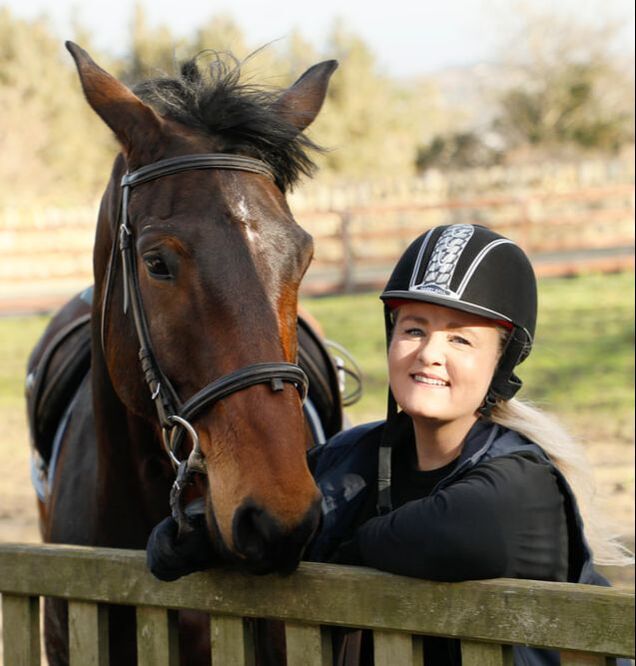
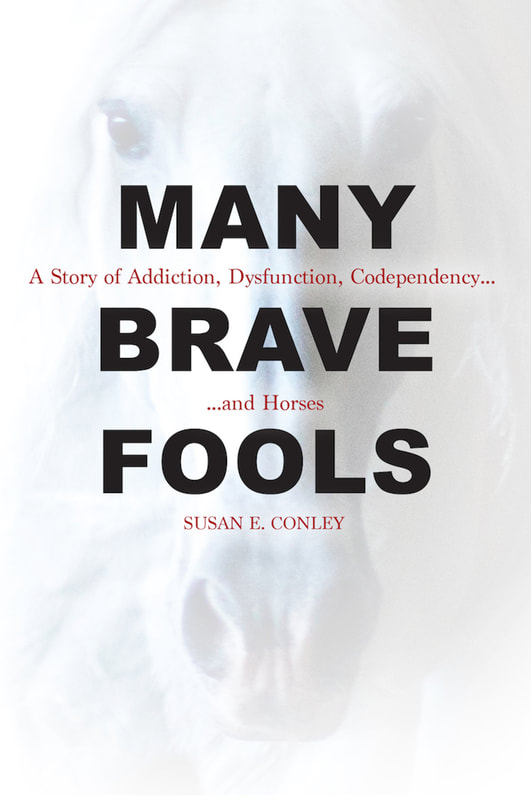
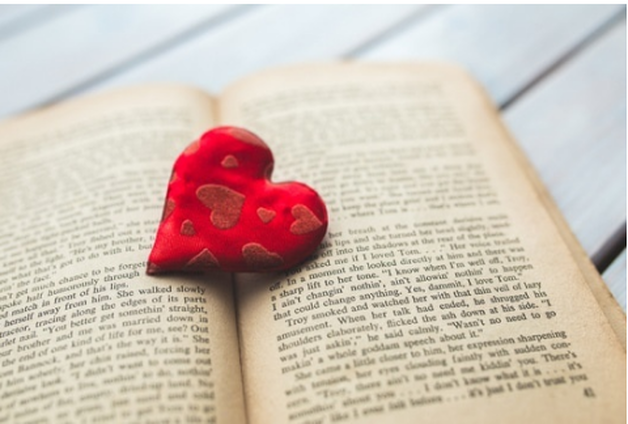
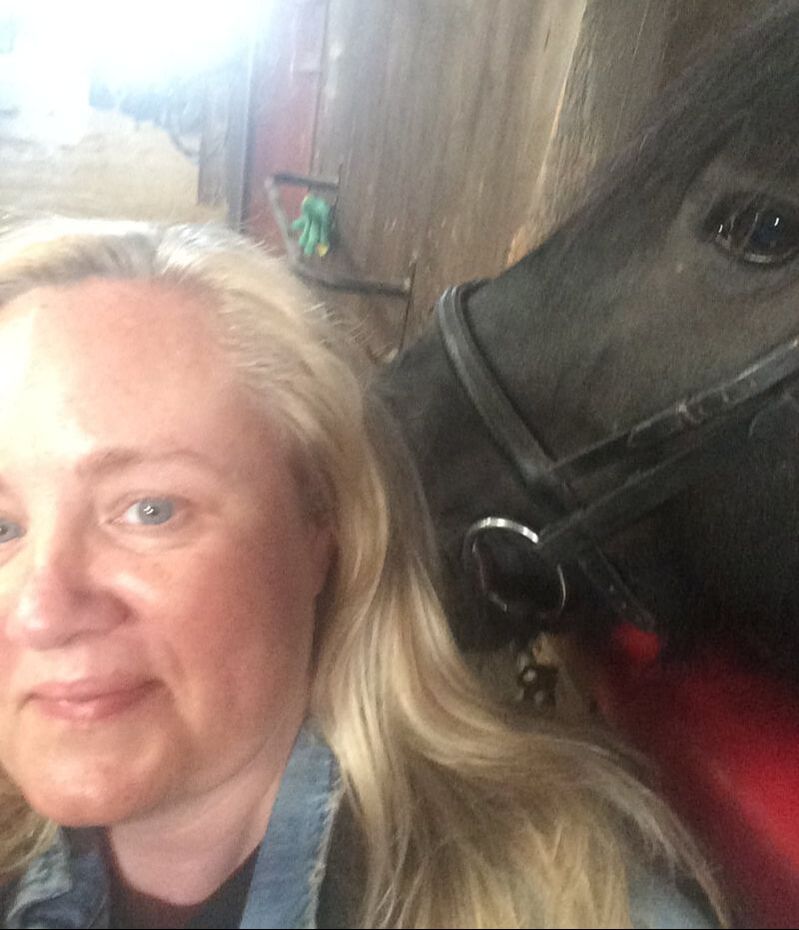
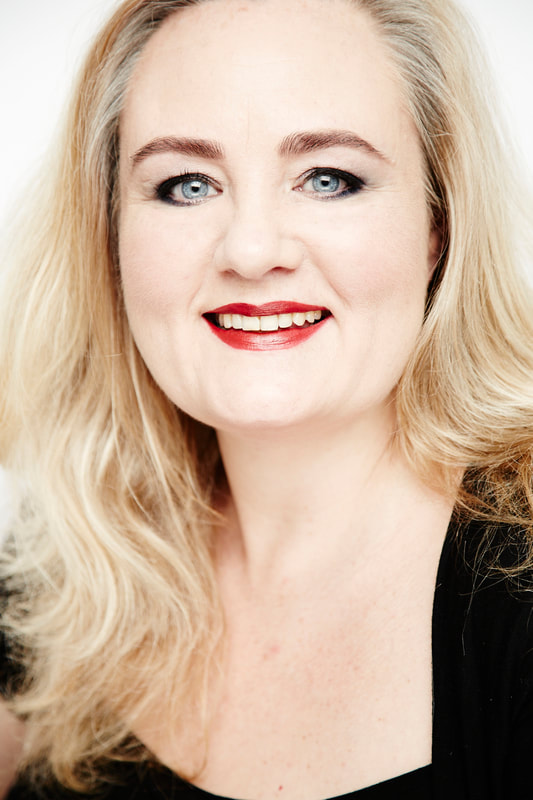
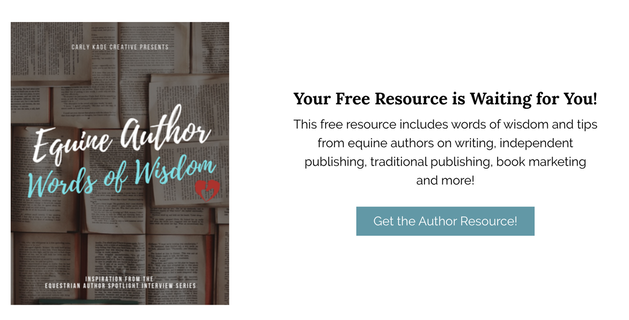
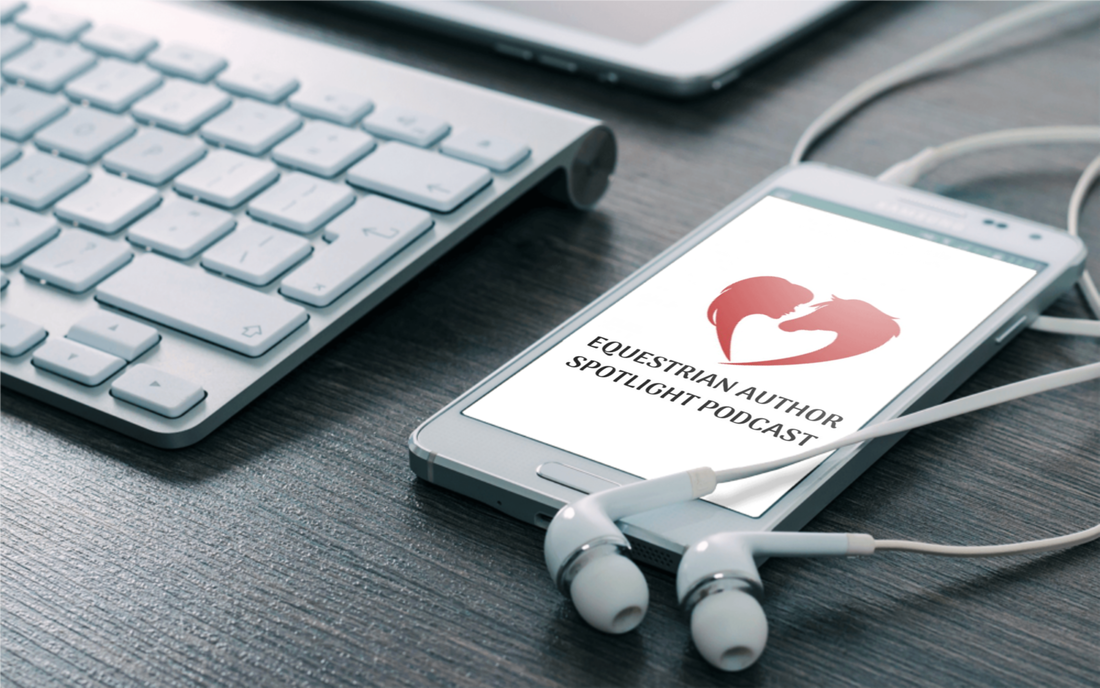
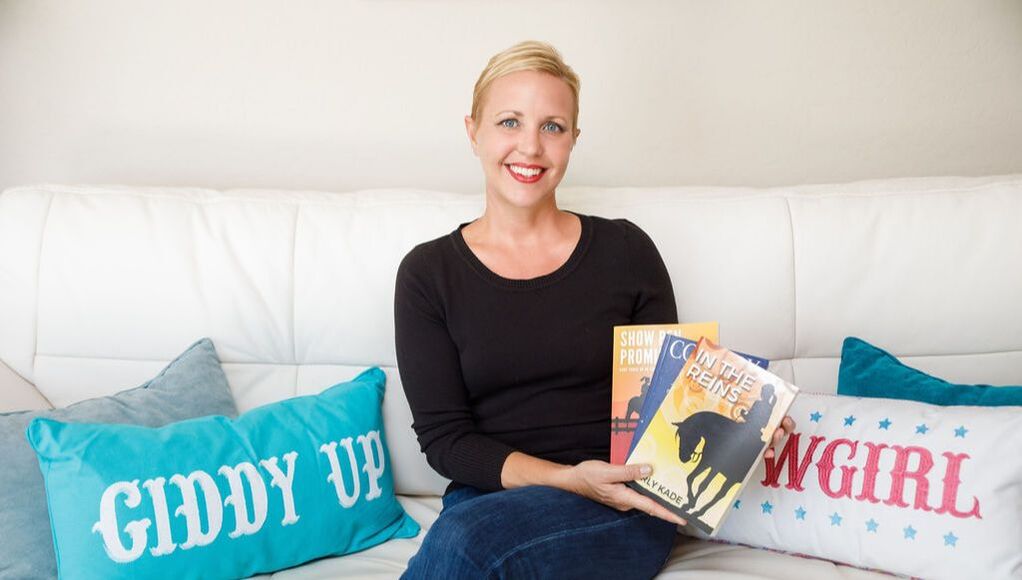
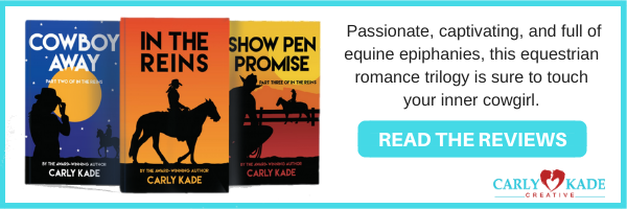


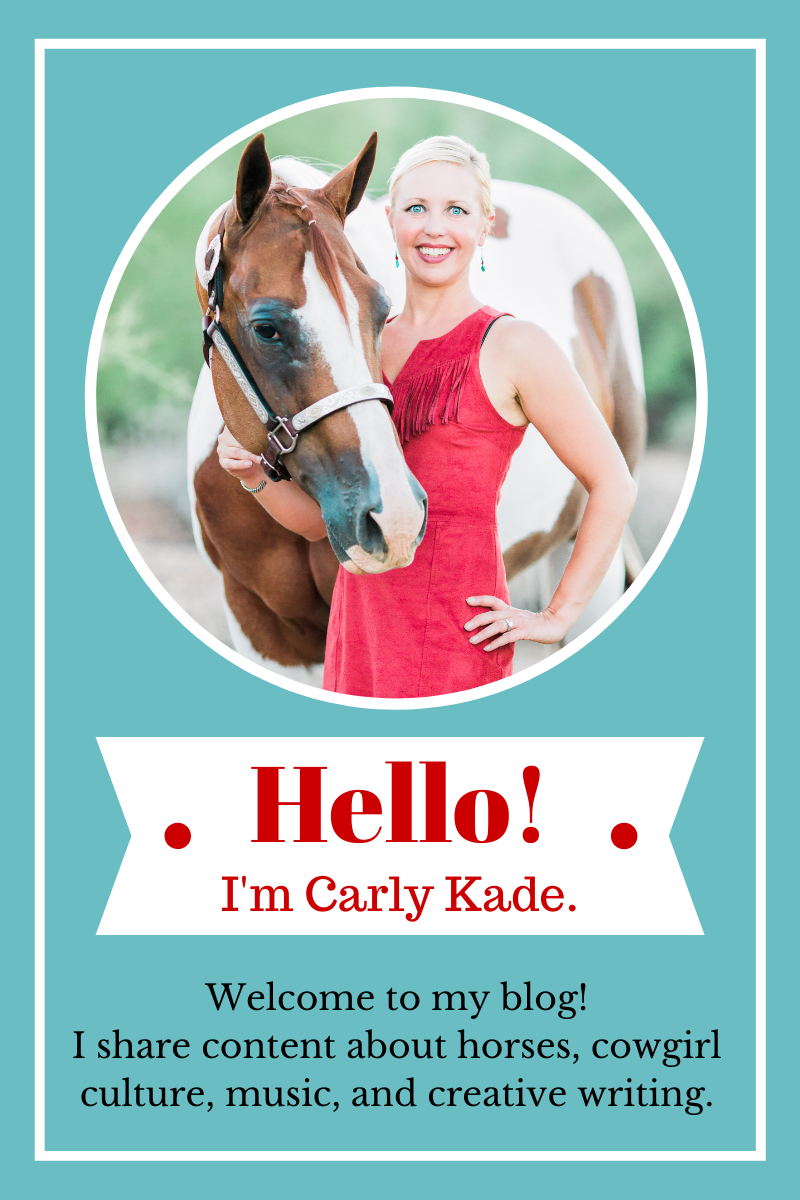
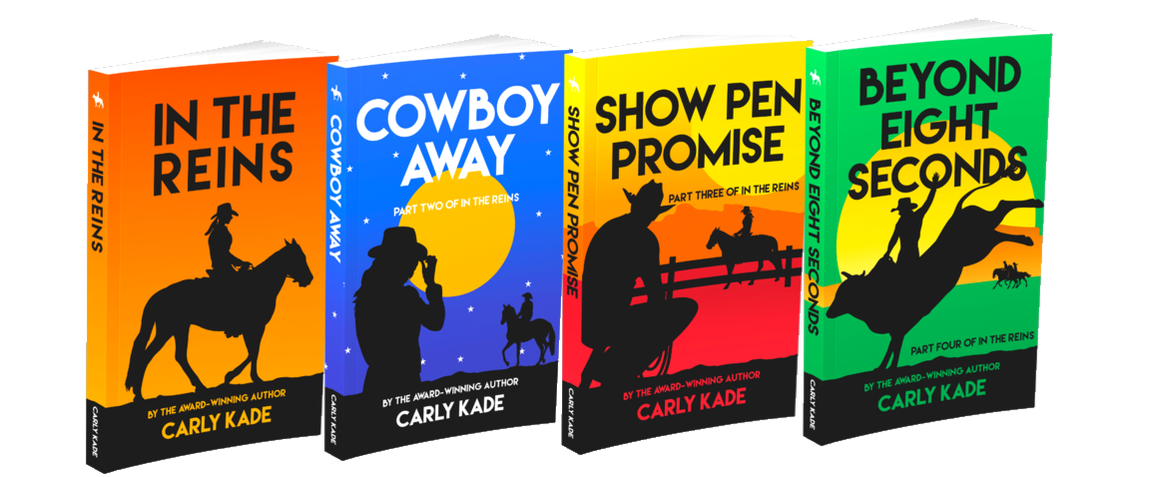
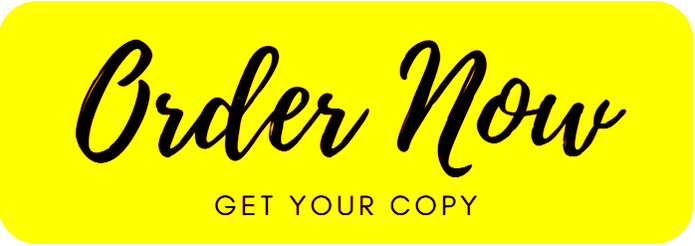
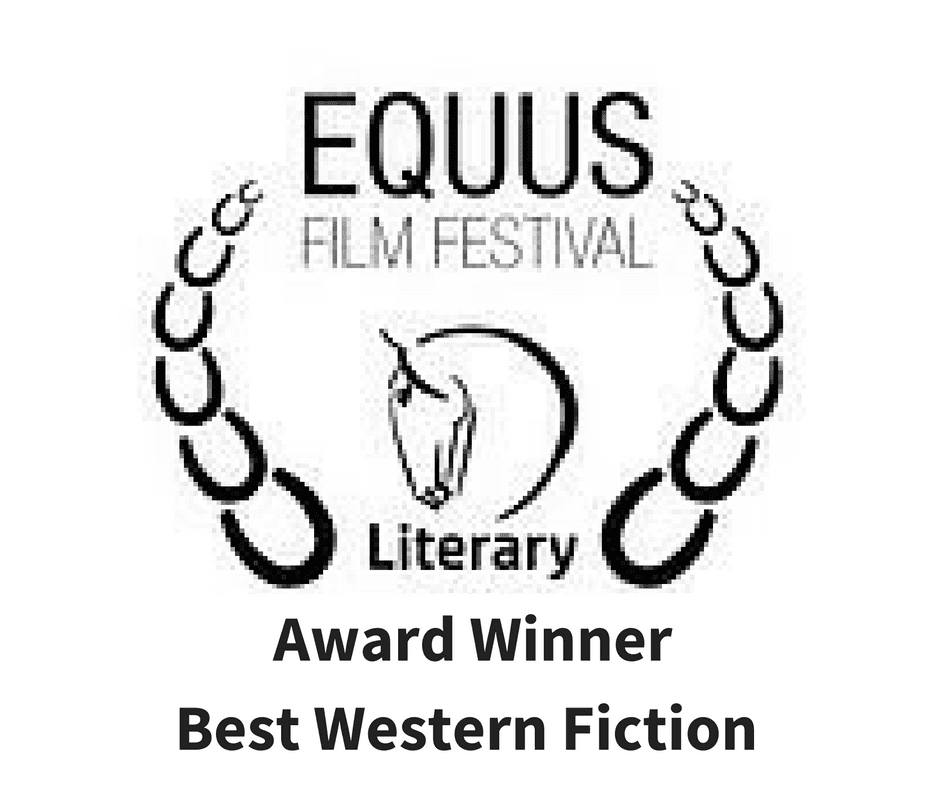
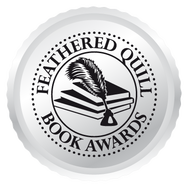
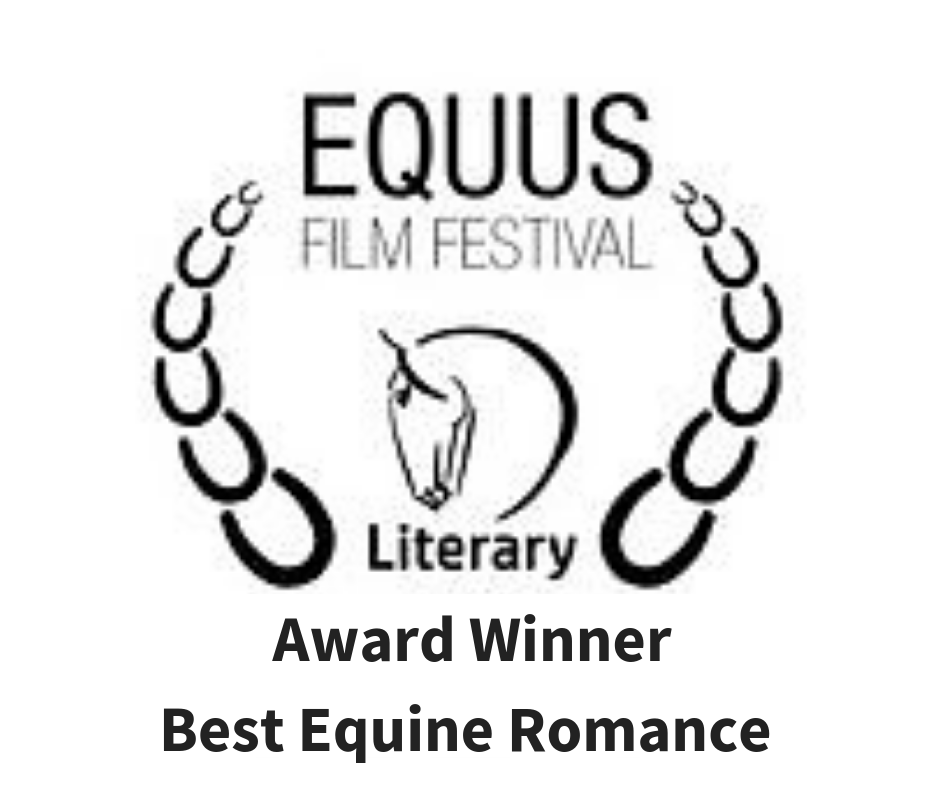
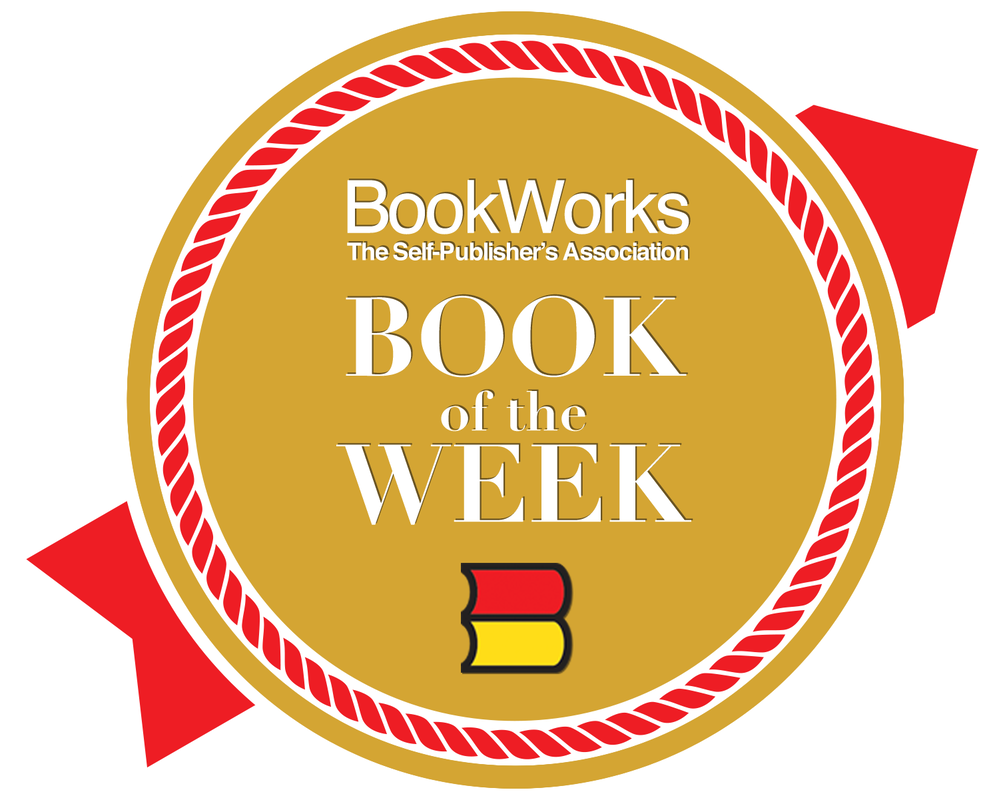
 RSS Feed
RSS Feed